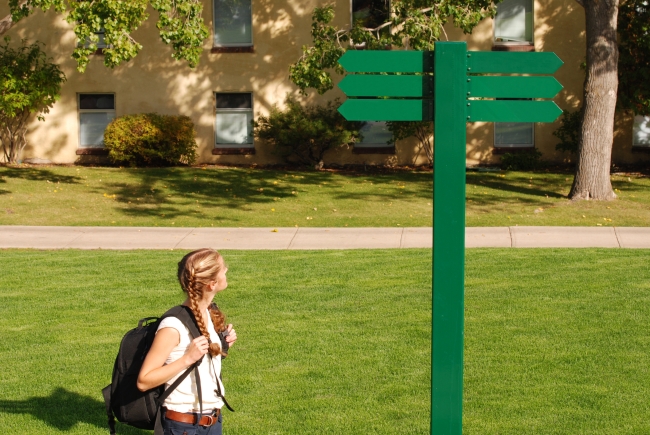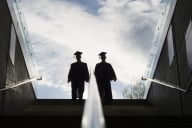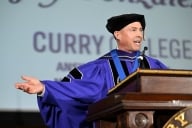You have /5 articles left.
Sign up for a free account or log in.

A series hosted by George Mason University's recreation staff helps students feel confident in conquering difficult life tasks.
FatCamera/E+/Getty Images
One of the challenges students in college and after graduation is learning to be independent and manage tasks, colloquially known as “adulting.”
George Mason University’s recreation department created a life-skills series called “Now What?” to answer questions about practical well-being and life after college to build students’ confidence in handling these tasks.
The program, launched in 2021, addresses current student needs and partners across campus to give a wide breadth of knowledge.
What’s the need: Often, colleges focus on career development and preparing students to launch into their lives after graduation as it relates to work, but students may also need support in daily activities as well.
A 2023 survey found younger adults are lacking in practical skills, with two-thirds (68 percent) of Millennials and Gen Z unable to change their car oil, half (48 percent) unable to change a tire and 46 percent unable to tie a tie.
A significant number of young adults also said they couldn’t jumpstart a car (42 percent), sew up a hole (41 percent) or file taxes (22 percent). The survey found 80 percent of Gen Z respondents do not feel like they have figured out adulting.
How it works: The program hosts around five events each semester, covering different topics that can help students in their well-being and lives after college. Topics range from how to utilize the tools in a household toolkit to getting involved in outdoor recreation and using a grill (the adulting survey found 18 percent of young adults couldn’t use a grill).
Rather than just telling students how to overcome a problem, the workshops provide hands-on learning opportunities for students to attempt the work themselves. A session on how to change a flat tire took place in the parking lot outside the recreation and athletic complex and let students change the tire themselves, empowering them to tackle issues independently in the future.
Scaling up: Campus partnerships have diversified the offerings of Now What? In January, Mason Dining, the campus dining department and student government worked with the recreation staff to teach a cooking and food prep course, for example. A collaboration with student health services resulted in a workshop on finding health insurance and understanding policies.
The initiative also receives support from the Mason Recreation marketing team to outreach to students and build a larger audience over the years. Staff also provide giveaways during the sessions to encourage participation.
Working with students: One of the largest challenges is getting students in the door, says Sydney Farrar, graduate professional assistant for well-being and assessment for Mason Recreation.
“It can be difficult putting yourself and programs you work hard on out there, and the students do not gravitate toward it. Sometimes the students are hesitant to admit what they don’t know,” Farrar says.
However, once students show up to the session, they express that they’re glad they sought help for an area of growth.
Mason Recreation staff host focus groups and partner with student organizations to ensure their programming is meeting the mark and helping students in the ways they most need support.
If your student success program has a unique feature or twist, we’d like to know about it. Click here to submit.








